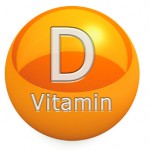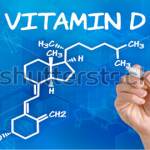I see the traditional Emirati women, who wear metal masks like old-fashioned sunglasses over their faces in Bedouin tradition, and I am convinced that the all encompassing robes are traditional ways of protection from the sun and unforgiving sandstorms. However, many women present for muscle pain, weakness, and deep-seated bone pain. Despite the sunny environment, there is an epidemic of vitamin D deficiency. Besides modest clothing, other factors account for this deficiency, including temperatures over 110º F in summer, encouraging a reliance on an air-conditioned, indoor environment. Rheumatologists in the region believe that more pigmented Arab and Asian skin probably prevents the absorption of UV light and leads to lower vitamin D levels. Our data show that high-dose vitamin D injections of 600,000 IU and correction of vitamin D levels to 30 ng/dl results in resolution of nonspecific muscle pains in 90% of our patients.4
Culture shock comes in many forms here. I had a five-foot-tall woman step on the scale. “Hundred kilos” [220 pounds], I announced, preparing to follow up with advice on how to lose weight. I was preempted, though, when the accompanying five family members said in unison, “Allhamdulillah” [Allah be praised]! The weight is due to abundance of food, a gift from God, and they are thankful. I have yet to see anyone anorexic here. People eat happily, without fear or guilt. They are somewhat overweight. Although obesity is becoming a growing problem, people wear the all-forgiving loose robes, live to a contented seventy years, and die without drama, surrounded by loving family members. Most women are brought to their appointments by their sons, brothers, fathers, or husbands. Likewise, most men are accompanied by a brother, wife, or family member. I see this as a welcome change and a sign of still-close family ties.
After five years, I feel lucky to be here as a participant and observer, enriched by yet another culture, absorbed, and am hopefully wiser in some respects.
Dr. Badsha is a rheumatologist in Dubai.
References
- Badsha H, Kong KO, Tak PP. Rheumatoid arthritis in the United Arab Emirates. Clin Rheumatol. 2008;27:739-742.
- Sokka T, Hetland ML, Mäkinen H, et al. Remission and rheumatoid arthritis: Data on patients receiving usual care in twenty-four countries. Arthritis Rheum. 2008;58:2642-2651.
- Leibman C, Badsha H. Emirates Arthritis Foundation: The challenges of setting up the first Arthritis Foundation in the Middle East. Ann Rheum Dis. 2008;67(Suppl II):683.
- Badsha H, Daher M, Ooi Kong K. Myalgias or non-specific muscle pain in Arab or Indo-Pakistani patients may indicate vitamin D deficiency. Clin Rheumatol. 2009;28:971-973.

